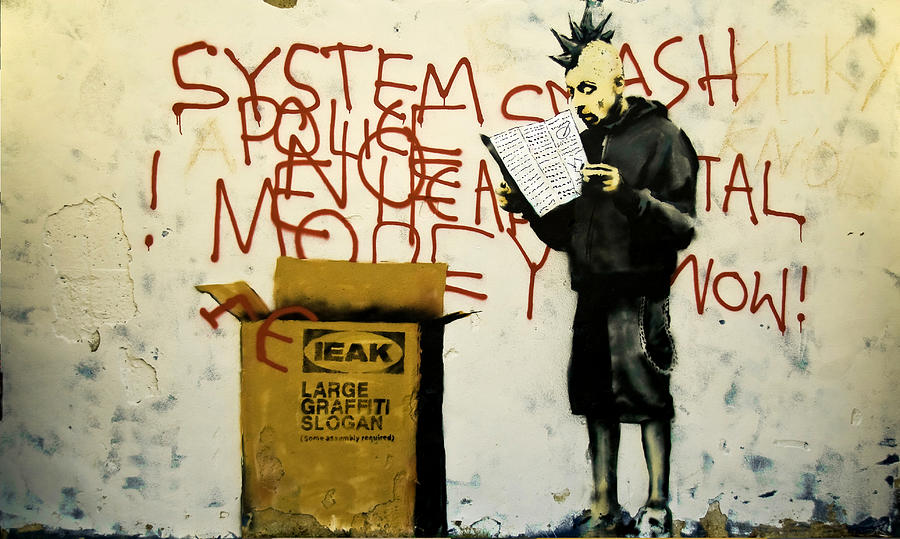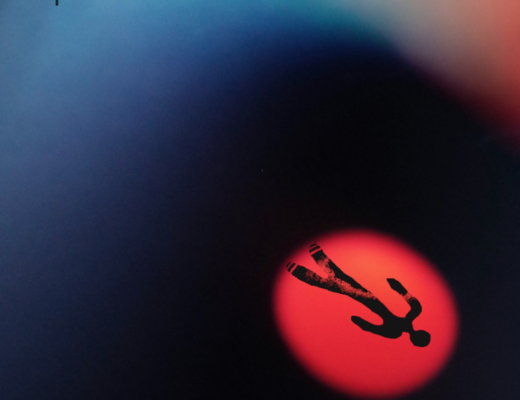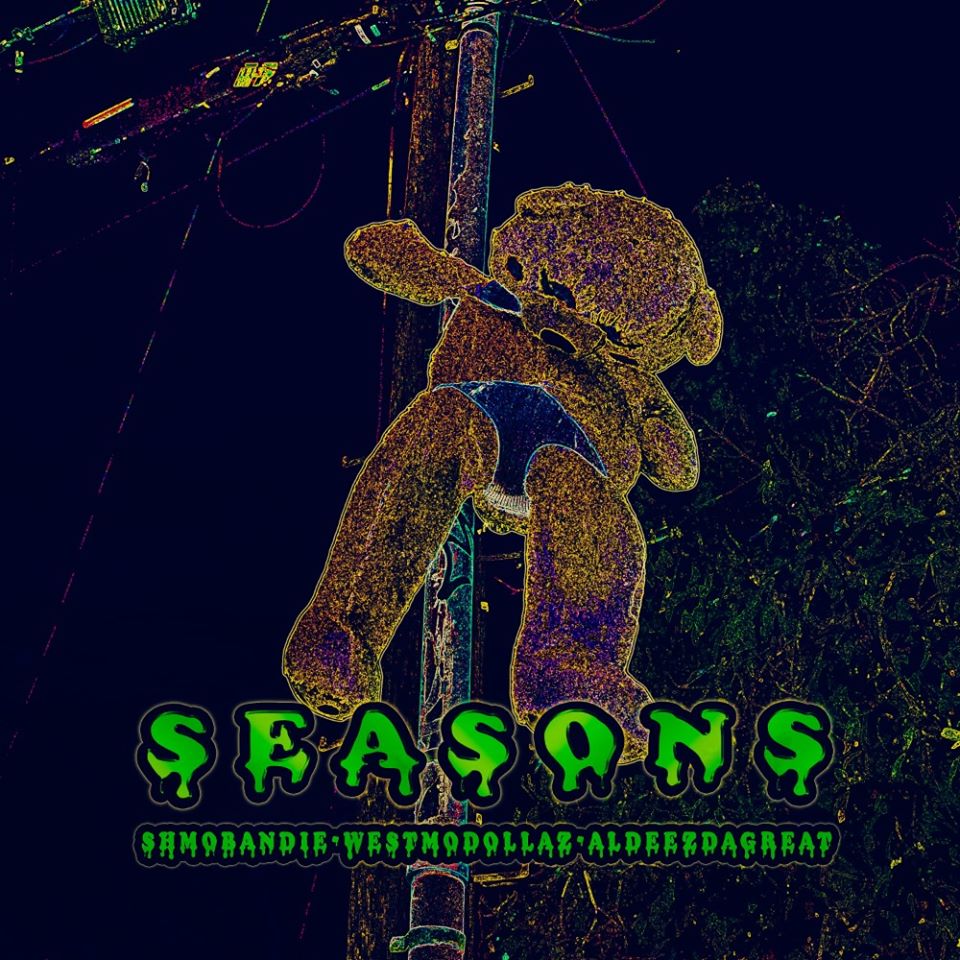With society becoming increasingly polarised and partisan with their ideals, the ambiguity and subjectivity of the punk ethos continue to be as amplified and weaponised as it was when the sonic strain of rebellion saw its inception when Bad Brains and Fugazi had to take back their scene from white supremacists.
Asking the definition of punk will always elicit a wide range of answers, typically subjective and based on personal beliefs. Much like asking someone their take on the meaning of life, asking for a definition of punk leads to diverse perspectives and opinions. The differentiations in opinion can naturally lead to points of contention.
The Ambiguity and Subjectivity of the Punk Ethos
While some may see leftist bands, including politically vocal bands such as Crass and Leftover Crack as punk, others enforce the insinuation that punk should be neither left nor right-wing – it should be entirely anti-establishment. Yet, punk artists have always fallen on either side of the spectrum. There has never been a shortage of conservative punks; Johnny Ramone and Bobby Steele (Misfits) being amongst the most prominent, with the likes of Skrewdriver falling on the more extreme end of the right-wing spectrum.
The existence of Christian punk bands, such as MxPx is also a baffling paradox. Aurally, they are as ‘punk’ as Green Day and Blink-182, but does their piousness preclude a punk attitude? Well, if you consider the punk ethos as one that goes against conformity and authoritarianism and consider that religiosity is one of the greatest examples of authoritarianism, given the submission to authority and conventionality, then you would have to argue that it does.
However, if you regard the ambiguity and subjectivity of the punk ethos, not as a flaw, but as a fundamental characteristic that allows punk to remain an evolving cultural driving force, you can see why anything can and does fly under the banner of punk. The differentiation in meaning, for artists and fans alike, is a phenomenon rooted in the origins of punk. Punk embraces individuality and resists strict definitions. It has done so since its mid-1970s inception which saw the movement erupt as a visceral reaction against corporate mass culture.
The Origin of Punk
Ramones, the Sex Pistols, and The Clash, with their raw sound and defiant attitude, became the embodiment of the punk movement in the mid-70s as a means to drown out the bloated-with-capitalism timbres of Rock n Roll. It was always more than a genre. It was (and still is) permission for self-expression, a celebration of DIY ethics, and an antagonistic force against authority and social normativity.
The DIY aspect of punk further contributes to its subjective nature. Punk has always encouraged grassroots involvement, from creating zines and organising gigs to forming bands and recording music independently. This DIY spirit means that punk is not just consumed but actively created by its participants, leading to a diverse range of expressions and interpretations. What punk means to a fanzine creator in London can be vastly different from what it means to a garage band in New York or a political activist in Berlin.
Moreover, the punk ethos is marked by a resistance to being pigeonholed or defined by external forces. This resistance is a reaction against the commercialisation and co-optation of music and culture. Punk’s disdain for the mainstream has led to a fluid and evolving identity, one that resists easy categorisation. This fluidity means that punk can be a moving target, always adapting and changing in response to the cultural and political climate. This is efficaciously encapsulated by The Virginmarys with their track, You’re a Killer, which fervently protests the age of division and disinformation with the scathed lines that will always strike a chord:
“Information, in formation
An idiot’s guide to dividing the nation
Grooming the youth to the point of sedation
Where hearing the truth gives a strange sensation
What you see’s not what it seems
The UK’s sleeping sweet American dreams
Democracy is a word shot from the mouth
Of a killer”
The subjectivity of punk is also reflected in its regional variations. Punk in the UK, with bands like the Sex Pistols and The Clash, often had a more overt political edge, reflecting the social and economic turmoil of 1970s Britain. In contrast, American punk, epitomised by bands like the Ramones and Black Flag, often had a more nihilistic and individualistic bent iconography attached to them, which is now increasingly perpetuated in contemporary UK punk scenes.
The Weaponisation of Punk
Just as people fought back against The National Front attempting to co-opt the punk movement when they skewed the meaning of the lyrical contexts within tracks from The Clash and Sex Pistols, and Henry Rollins and Ian Mackaye refused to be passive in their resistance when the frenetic nature of American hardcore attracted Neo-Nazis like moths to a flame, it’s crucial that no form of contemporary xenophobia gets to fly under the guise of punk.
One of the key reasons for the ambiguity and subjectivity of the punk ethos is its foundational principle of individualism. Punk encourages people to think for themselves, to question the status quo, and to express their unique perspectives and identities. This ethos naturally leads to a wide range of interpretations and expressions. For some, punk is primarily about the music and the energy of live performances. For others, it’s a political statement, a way to challenge societal injustices and speak for the marginalised. And for many, it’s a fashion statement, a way to visually express their rebellion against mainstream norms.
So, given that punk is a means of individualistic empowerment which gives people the freedom to challenge social constructs and embrace their autonomy, it is nothing short of fucked up that the Trans Exclusionary Radical Feminist (TERF) movement is attempting to infiltrate punk in reaction to people refusing to play along with gender roles anymore, especially if those assigned at birth gender roles are completely at odds with innate identity.
It may require one brain cell too many for people to wrap their heads around the fact that gender is shaped by societal norms and expectations rather than being solely determined by biological or physical differences, but the consequence of that cannot and should not be the demonisation of trans, non-binary, and queer people. Of course, TERFs and their army of gender-critical sheep can’t come right out and say why they feel threatened by trans and non-binary people. They have to convince themselves that there is an existential threat to women and children to feign some form of valour.
On the other hand, it’s entirely possible that they don’t even have the cognitive capacity to realise that their aversion to people who don’t marry themselves to the conformity of gender roles boils down to a fear that their own safety blanket of conformity will be torn away. Perhaps they’ve all got a bad case of gender role Stockholm syndrome.
Where is the clause in the punk ethos to declare that you can’t embrace your identity if that means you are rejecting arbitrary gender roles and living your life whilst proving that gender is not a fixed or innate attribute but rather a fluid identity shaped by social and cultural context?! I certainly don’t see one.
Don’t believe the “TERF is the new punk” hype. No matter how many garish t-shirts are pressed by the biggest victim-mentality grifter who cries to the Daily Mail and GB News that she’s been cancelled by the music industry for airing her dimly dogmatic views. Just like the evil protagonist in her fellow TERF’s book and film franchise, she isn’t to be named, because every bit of publicity is fuel for her self-piteous fire.
In Conclusion
The ambiguity and subjectivity of the punk ethos are central to its enduring appeal and relevance. Punk is not a monolith but a mosaic, made up of diverse voices and perspectives. This diversity allows punk to continually reinvent itself and remain relevant to new generations of artists and fans. Whether as a musical genre, a political statement, or a lifestyle, punk remains a powerful symbol of rebellion, individuality, and self-expression. However, that doesn’t mean that harmful tropes pushed via the righteousness of punk should go unchallenged. Punk isn’t a free pass to prejudice.
Article by Amelia Vandergast








No Comments